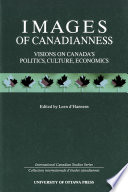Year
2017
Publisher
UCL Press
Type
BOOK
Category
Political Science
Language
English
Pages
290
ISBN
978-1-78735-033-5
Last Update
09-Sep-2024
Keywords
POLITICAL SCIENCE / Public Policy / City Planning & Urban Development;ARCHITECTURE / General;ARCHITECTURE / Buildings / Residential;ARCHITECTURE / Methods & Materials;ARCHITECTURE / Urban & Land Use Planning;ARCHITECTURE / Reference;LAW / Housing & Urban Development;POLITICAL SCIENCE / Public Policy / Social Services & Welfare;POLITICAL SCIENCE / Public Policy / Social Policy;SOCIAL SCIENCE / Anthropology / General;SOCIAL SCIENCE / Human Geography;SOCIAL SCIENCE / Sociology / General;SOCIAL SCIENCE / Sociology / Urban;SOCIAL SCIENCE / Sociology / Social Theory;SOCIAL SCIENCE / Poverty & Homelessness
Related
See More
Data Flood

Geister der Kindheit

Archaeological Science Under a Microscope, Studies in Residue and Ancient DNA Analysis in Honour of Thomas H. Loy

The British Monarchy On Screen

Forschungsdatenmanagement sozialwissenschaftlicher Umfragedaten

Images of Canadianness